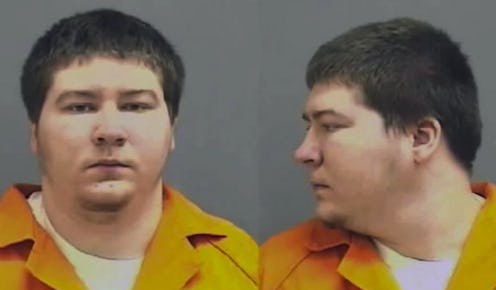News
Dassey Is Thankful For Experts, Public Support

Everyone must be in the know by now about the hit Netflix series Making a Murderer, which follows the case of Steven Avery and his nephew Brendan Dassey of Manitowoc County, Wisconsin. In 2007, both were accused and convicted of the 2005 murder of 25-year-old photographer Teresa Halbach. Dassey was only 16 years old when he confessed to police about his involvement, and has been in prison since his conviction in 2007. His lawyers have appealed his sentencing and asked for a new trial that could end in his release, and Dassey is grateful for all the support he's been receiving.
One of his attorneys, Laura Nirider, told USA TODAY, "He receives dozens of letters a day from those who want to support him. That means a lot." He has also received support from legal scholars and criminal experts across the U.S. since the series first aired in December 2015. Nirider spoke about how Dassey has been more hopeful about his sentencing since the docuseries was first released. She said, "We’ve gotten hundreds of emails, phone calls and letters from people who have ideas that might be able to help Brendan or express their support for Brendan. It’s wonderful to get those letters and emails."
Dassey is currently serving a life sentence, and will be eligible for parole in October 2048. His attorneys are expecting a decision on his case's appeal at some point this year, which could grant him a new trial. And with a dedicated audience standing by already, this part of the process could be covered in Season 2 of Making a Murderer. Dassey's suit claims that his initial detention was illegal, and that his confession was coerced by Manitowoc County police. But the prosecution maintains that the interrogation procedure was by the books, and the Manitowoc County Sheriff's Department has denied all allegations of wrongdoing.
Nirider told ABC News, "What you have here are police officers who are using psychological interrogation tactics that were designed for seasoned adult criminals on a 16-year-old with intellectual limitations." Mark Fremgen, who represented Dassey during the initial trial said that "[Dassey’s] case was purely a circumstantial evidence case" that focused heavily on the Avery case. Confessing to a crime under psychological stress is not uncommon. According to the Innocence Project, one in four people who have been convicted of a crime and later exonerated by DNA evidence made a false confession. The attention Dassey has received from the show's success since December is certainly part of the motivation for the outpouring of dedication and support from the public and experts alike.